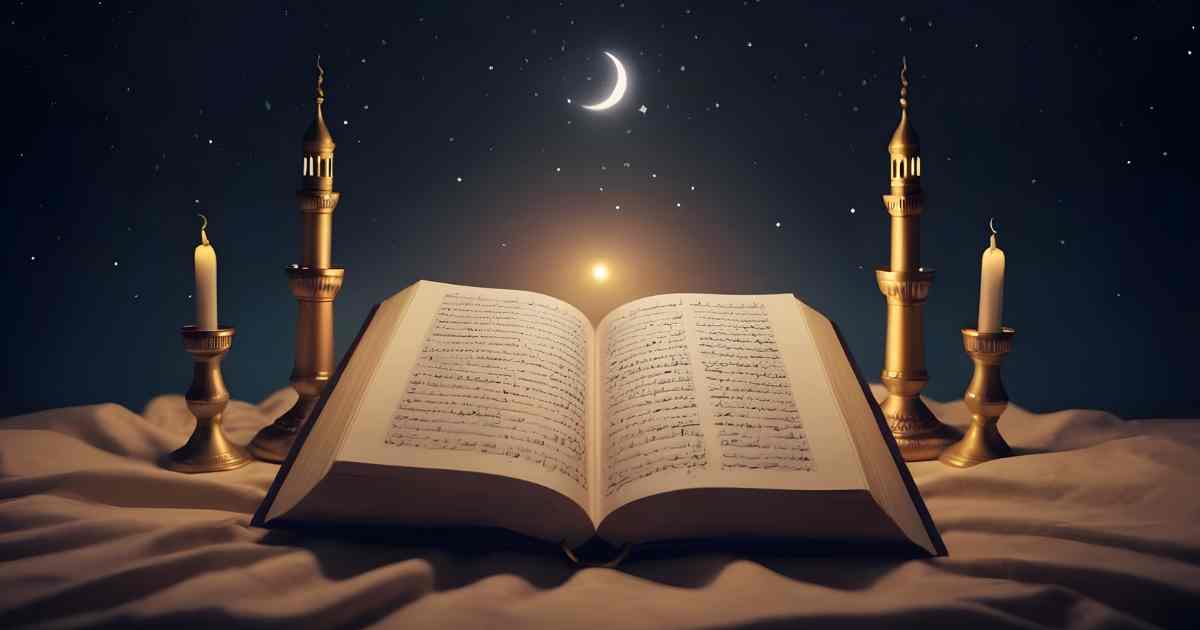Overview
Laylat al-Qadr, also known as the Night of Power or Night of Decree, is one of the most sacred and special nights in Islam. It holds immense significance for Muslims worldwide. This night, believed to be within the last ten nights of Ramadan, is the night when the first verses of the Quran were revealed to Prophet Muhammad (peace be upon him). It is a time for increased devotion, prayer, and reflection.
The Night of Power: What Is It?

Prophet Muhammad (peace be upon him) beautifully captures the meaning of Laylat al-Qadr in the hadith he narrated.
“Seek Laylat al-Qadr in the odd nights of the last ten nights of Ramadan.” ([Bukhari and Muslim])
This Hadith tells us that the Night of Power falls on one of the odd-numbered nights (21st, 23rd, 25th, 27th, or 29th) of the last ten days of Ramadan. The exact date, a mystery known only to Allah, adds to the anticipation and eagerness of Muslims to intensify their worship and spiritual practices during this blessed period.
The Significance of Laylat al-Qadr
The Quran highlights Laylat al-Qadr’s importance in Surah Al-Qadr: “The Night of Power is better than a thousand months.” This verse emphasizes the immense blessings and rewards associated with this night. Good deeds performed on Laylat al-Qadr are believed to have been multiplied many times.
Ways to Celebrate Laylat al-Qadr
While the exact date of Laylat al-Qadr is unknown, Muslims worldwide unite in their efforts to make the most of the last ten nights of Ramadan. Here are some ways to observe and celebrate this special night:
- Increased Prayer and Supplication (Dua)
Muslims devote more time to night prayers (Tahajjud) and offer special supplications (dua), seeking forgiveness, blessings, and guidance from Allah (SWT).
- Reciting the Quran
Reading and reflecting on the Quran is a cherished practice during Laylat al-Qadr.
- Itikaf
A practice where Muslims choose to spend the last ten nights of Ramadan in seclusion within the mosque, is highly recommended during Laylat al-Qadr.
This practice allows for increased devotion and worship, and it is believed that those who observe Itikaf during Laylat al-Qadr will have all their past sins forgiven.
- Charity and Good Deeds
Laylat al-Qadr is an opportune time to increase acts of charity and good deeds, such as giving Zakat (obligatory charity) or helping those in need.
Laylat al-Qadr Duas
There are no specific prayers prescribed for Laylat al-Qadr. However, Muslims can offer sincere supplications (dua) from their hearts, seeking forgiveness, blessings, and guidance from Allah (SWT). Here’s an example dua:
“Allahumma innaka ‘affuwwun, tuhibbul-‘afwa, fa’fu’ anni” (O Allah, You are indeed Oft-Forgiving, You love forgiveness, so forgive me.)*
Symptoms of Laylat al-Qadr
There are no definitive signs to identify Laylat al-Qadr. However, some traditions mention possible spiritual experiences, such as a feeling of calmness and peace or seeing a dream with positive connotations. It is important to focus on sincere worship and supplication rather than searching for specific signs.
On Laylat al-Qadr, Zakat
Giving Zakat, the obligatory charity, is a highly recommended act throughout Ramadan, especially on Laylat al-Qadr. This act of charity not only helps those in need but also brings immense blessings and rewards on this special night. It is believed that giving Zakat on Laylat al-Qadr is equivalent to giving Zakat for a thousand months, emphasizing the immense rewards associated with this act.
Conclusion
Laylat al-Qadr is a night filled with immense blessings and opportunities for spiritual growth. While the exact date remains unknown, focusing on increased worship, prayer, and good deeds throughout the last ten nights of Ramadan allows you to reap the benefits of this blessed night.
May this Laylat al-Qadr bring you closer to Allah (SWT) and fill your life with peace, blessings, and forgiveness. We encourage you to share your experiences and learnings from this blessed night with the community, as it can inspire and guide others in their worship and spiritual practices.